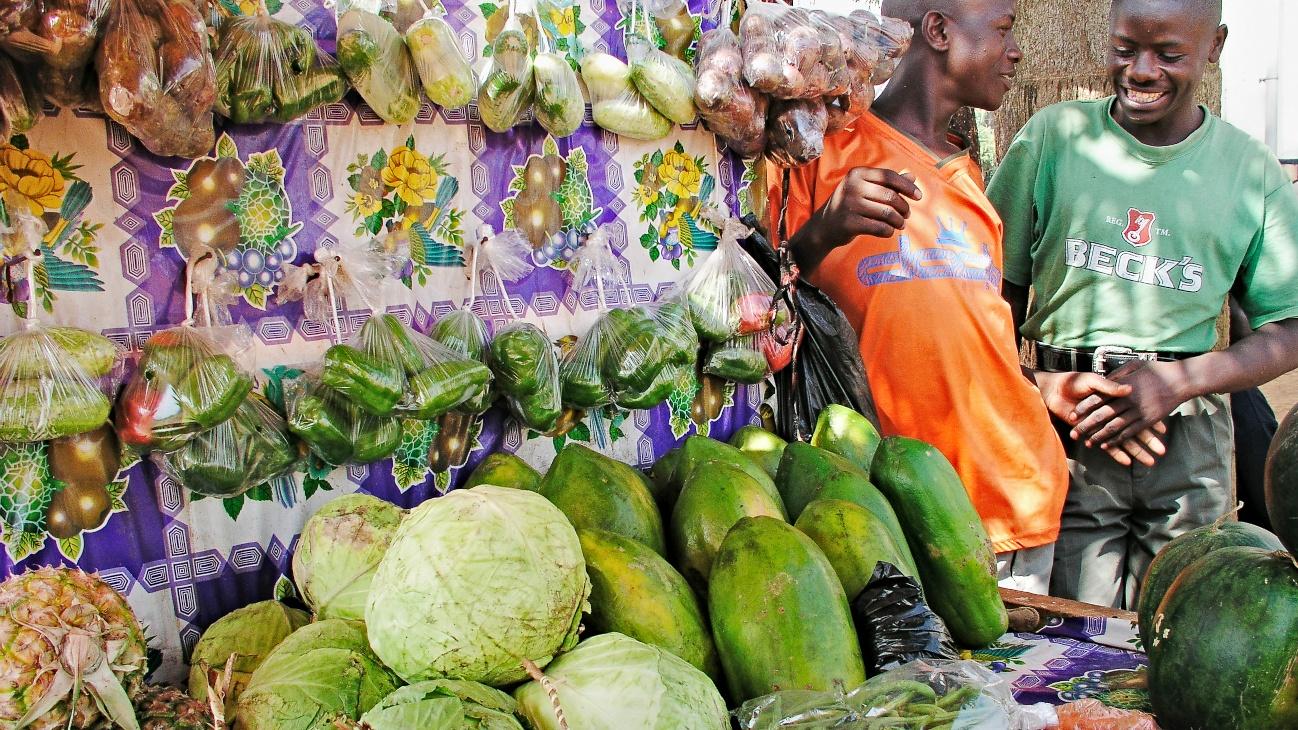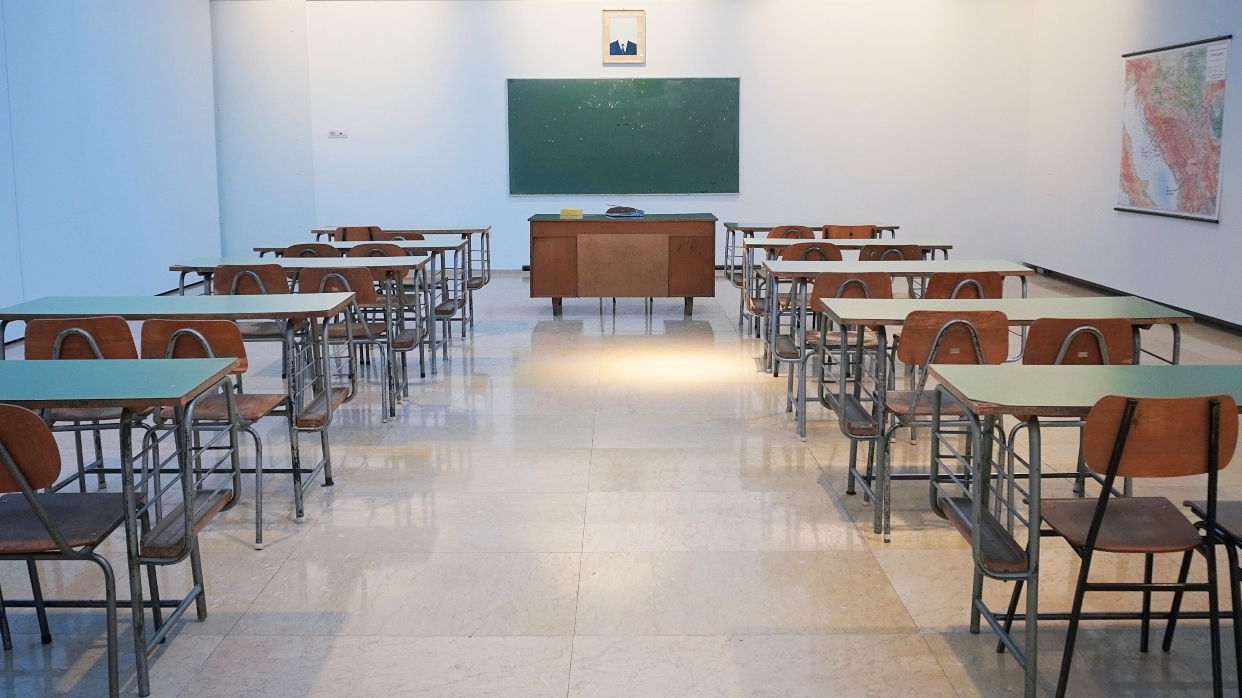Positive cases of COVID-19 in Nairobi account for over half of Kenya’s total, but in the capital hospitals are recording reduced patient numbers. Duncan Nyagah looks into the effects of curfews, media fear mongering and the threat of high hospitalisation costs to explain these figures, and the wider implications for citizens’ health.
This blog is part of the series Shifting Spaces, an emerging timeline of COVID-19 responses from Kenya, Malawi, Tanzania and Uganda.
COVID-19 has presented significant challenges to African healthcare systems. In Nairobi, cases and fatalities continue to soar, with the county accounting for more than 50% of Kenya’s total case count as of 27 May 2020. This could be attributed to Nairobi being the capital city, the regional air transport hub and the biggest commercial zone in East Africa. Yet, these health statistics tell us little about the impact on healthcare systems more widely, and the well-being of Nairobi residents.
Six weeks since the first case was reported in mid-March, hospitals continue to experience troublingly low numbers of inpatients and outpatients. This reduction in patient numbers signals that, in the coming months, Kenya could experience significant challenges from diseases and conditions, beyond COVID-19.
The implications of this development could be painful and catastrophic for patients and their families.
Declining use of health facilities
Nothing in recent history has brought such unparalleled fear among Nairobi residents as COVID-19. Close interactions in the highly social city have been redefined and its economic system shaken. As some of the best global healthcare systems are brought to breaking point and more than a third of the world’s population are living under some form of movement restrictions, Nairobi has also been placed under curfew, with movement to and from the city banned. Amidst these restrictions, hospitals have continued to record reduced patient numbers, even in situations where already sick people need regular medical care to manage their conditions. Several reasons help to explain the reduction in patient numbers.
Fear generated by media
What Kenyans have termed ‘coronaphobia’ – fear of the virus, is real. Early January media coverage on the situation in China, and subsequent focus on death tolls in Italy, Spain, UK and the US, has had the effect of generating fear among Nairobi’s residents. Shocking images on social media and TV bulletins of intensive care unit (ICU) incubators and ventilators have intensified that fear. The spread of these images, and the connections Nairobians make between their own fates and other countries, have resulted in people shying away from hospitals. Patients are concerned that they might contract the disease at hospitals where severe cases are handled.
In a recent interview, Dr Olweny, the Secretary General to Kenya Association of Private Hospitals, confirmed that patients are shunning hospitals for fear of contracting COVID-19. There have been reports that doctors are having a difficult time in some cases taking sick people to emergency rooms because patients are concerned with catching the disease.
Isolation of vulnerable groups
Fear of COVID-19 is not evenly distributed. When the first COVID-19 case was diagnosed in Kenya, it was globally evident that the disease had disproportionate fatal outcomes for older people and those with compromised immunity from underlying conditions such as cancer, MDR-TB, HIV, diabetes, HBP and cardio-vascular ailments. These groups seek hospital care more frequently. In the days after the first case, there was a call from the government for these groups to stay at home and avoid public interactions as much as possible. This drastically reduced their visits to hospitals. In fact, according to Texas Cancer Centre in Nairobi, the hospital saw more than a 40% reduction in patient flows, only a month after the first case was reported.
Nairobi is also the hub for cancer treatment, hosting seven out of 10 cancer hospitals. Beyond the city, 90% of Kenya’s 47 counties do not have cancer treatment facilities. The restriction of travel into and out of Nairobi Metropolitan zone consequently resulted in the inability to access these facilities by cancer patients as needed.
Economic factors
COVID-19 has had unprecedented impacts on the local economy with businesses in the city severely affected. Many have closed while others massively scaled down operations. This has resulted in thousands of lay-offs. Most who had been formally employed have had their employers’ health policies stopped and their contributions to the National Health Insurance Fund (NHIF) halted.
Harder financial times are experienced by those employed informally and living in slums. People living in Kibera, Mukuru and Korogocho slums mostly work for daily wages as casual labourers on construction sites and industrial companies, as cleaners in restaurants or as hawkers and househelps. They have the most uncertain of income flows and the shaken economy means great suffering for their families. Many people are making painful choices between food/rent and healthcare, leading to a sharp decline in patient flows to hospitals.
Curfews
Government imposed measures have also made it difficult for patients to visit hospitals. Indeed, night curfews have had the impact of reduced deliveries, reports Pumwani Maternity Hospital. Studies have established that slightly more than half of labours start at night and, when that happens, most mothers in Nairobi depend on boda bodas (motorbike taxis), cabs or public buses to get to hospital. The curfew in force means these options are unavailable and, without access to ambulances, a significant number are forced to deliver at home.
Increased instances of home deliveries could slowly turn back the gains in child mortality and maternal health which have been the focus of Millennium Development Goals 4 and 5 respectively. It is observable that over the last three months fewer children under the age of two years are receiving vaccinations against highly transmissible ailments such as polio and measles. This could result in devastating outcomes for children in the coming months.
Fear of hospitalisation costs
Some people have been adamant not to go to hospitals thinking they might inadvertently be declared COVID-19 positive, particularly when they display similar symptoms. This is especially so for pneumonia and tuberculosis patients. The way in which the government is ruthlessly executing mandatory quarantines for suspected cases is a deterrent, exacerbated by the individual burden to settle hospitalisation costs. And given the much-publicised cost of treatment, of about $20 a day for at least 14 days, many people in the county have chosen to stay away from health centres.
Implications for health
The consequences of not receiving medical attention on time can be dire. A lack of treatment for cancer, HIV, diabetes, HBP and heart conditions within certain timeframes can result in disease progression, deterioration of health and possibly death. Similarly, lack of timely treatment of other infectious diseases can result in fatalities and transmissions at unprecedented levels. Misdiagnosis combined with self-medication and herbalism – a long-standing practice among Kenyans – might further catalyse complications.
There are real concerns that should COVID-19 persist without state interventions or business and operational innovations on the part of private hospitals many will close down, due to the inability to fund operational costs. While public hospitals depend on huge subsidies and support from the National and County Government of Nairobi to pay staff, acquire medicines and build facilities, private hospitals operate purely as private businesses and depend on patient fees to operate. The net effect will be a serious lack of sufficient health service providers to serve Nairobi.
Already, hospitals established by Christian organisations have publicly called upon the national and private insurers to settle outstanding claims to help them stay afloat. On 17 May 2020 the Anglican Church of Kenya’s (ACK) Archbishop, Jackson Ole Sapit, called on the government to provide financial support and personal protective equipment to hospitals run by the church to bolster their efforts in the fight against COVID-19. ACK, Catholic, AIC and PCEA churches run some of the best and most affordable mission hospitals in Nairobi.
The spill over of a weakened health system
The impacts of COVID-19 on people’s health and wealth have been catastrophic and continue to grow as cases increase. But the spill over effects to other diseases, conditions and general well-being will be much worse for the people of Nairobi in the coming days. An already weak county health system is slowly starting to crumble. This calls for quick and decisive action by the national and county governments to financially support hospitals, both public and private, lest they become operationally crippled. Actions are needed that will catalyse innovative service delivery that ensures that those who need urgent medical care and attention continue to do so even without physically visiting health facilities, at least until a COVID-19 management or treatment regimen is established.
Photo: U.S. Army photo by Rick Scavetta, U.S. Army Africa Public Affairs, is licensed under creative commons (CC BY 2.0).






The main reason why most Kenyans shy away from healthcare facilities is because of nostalgic memories of how the government first responded to covid19. Most Kenyans were forced into self quarantine in places they could not afford regardless of their economic status.
You realize that since the outbreak of the pandemic many people have learnt to stay with their coughs, let a lone sneezing. It’s become a taboo to sneeze in the public.